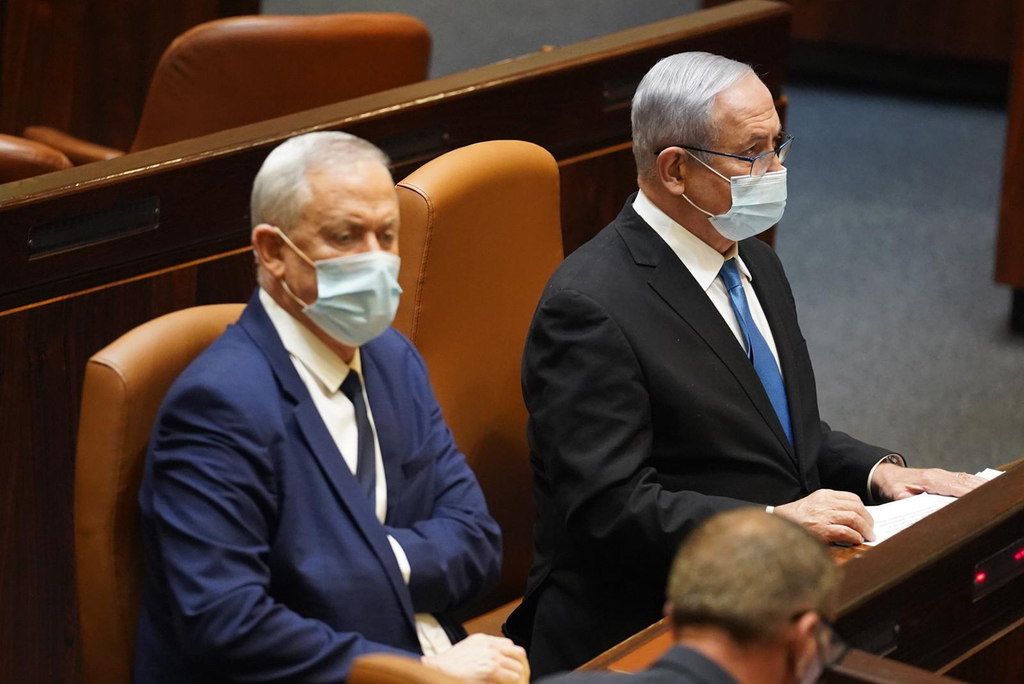Israelis were this week treated to a leaked exchange between Prime Minister Benjamin Netanyahu and Defense Minister Benny Gantz as they hurled accusations at one another during a ministerial meeting to discuss the exit strategy from the third national lockdown.
“The blood of countless Israelis will be on your hand!” shouted Netanyahu as he advocated for the continuation of the stringent closures to fight the coronavirus.
“Don’t you try to teach me anything regarding human lives!” yelled back Defense Minister Benny Gantz, who accused the prime minister of delaying the exit from lockdown in a bid to stall the criminal trial against him.
The leak was clearly aimed at reinforcing Netanyahu’s narrative that he is in charge and Gantz is happy to endanger lives.
3 View gallery


Defense Minister Benny Gantz and Prime Minister Benjamin Netanyahu in the Knesset
(Photo: The Knesset)
After the recordings emerged, Gantz insinuated that Netanyahu himself was behind their release. He demanded that the protocols from government meetings on the crisis be published in full, “and not just leaks that benefit the prime minister's personal and legal needs.”
Given the current situation, it is irrelevant who leaked what and why.
The government frequently holds discussions and makes decisions about the most serious civilian crisis the country has ever known, all of which remains confidential under the archaic Archive Law that prevents the publication of government protocols for at least 30 years. They are acting as though these debates touch on Israel's nuclear program (if it exists; we may finally know in several decades from now).
Meanwhile, Netanyahu and other politicians are busy leaking excerpts from these meetings for their own political ends while simultaneously insisting that they remain confidential.
Section 35 of the Basic Law: The Government states that, "The debates and decisions of the Government and those of the Ministerial committees regarding the following matters are secret and their disclosure and publication is prohibited: State security; Foreign relations of the State; Matters regarding which the Government deems secrecy to be essential to the State.
The law also states that this can apply to a "matter that the Government has decided to keep secret."
But there is no reason to keep the government's discussions on the coronavirus confidential as they do not relate to any sort of state secret or national security.
Nor is their confidentiality guaranteed as the ministerial meetings on the pandemic are conducted via the Zoom app, which gives every participant the option to record the discussions and share them with whomever they choose.
3 View gallery


Small business owners protest in Tel Aviv against the second lockdown
(Photo: The Movement to Support the Fashion Industry)
The law prohibiting the publication of the minutes of coronavirus meetings for 30 years is irrelevant and detached from reality.
This unwarranted secrecy also serves to further erode public trust in the government, when everyone knows they only leak cherry-picked conversations and make certain decisions for political reasons.
Now is the time to properly publish the discussions and decisions regarding the damned coronavirus.
Not because it's a political issue, but because it is in the public’s best interests.


